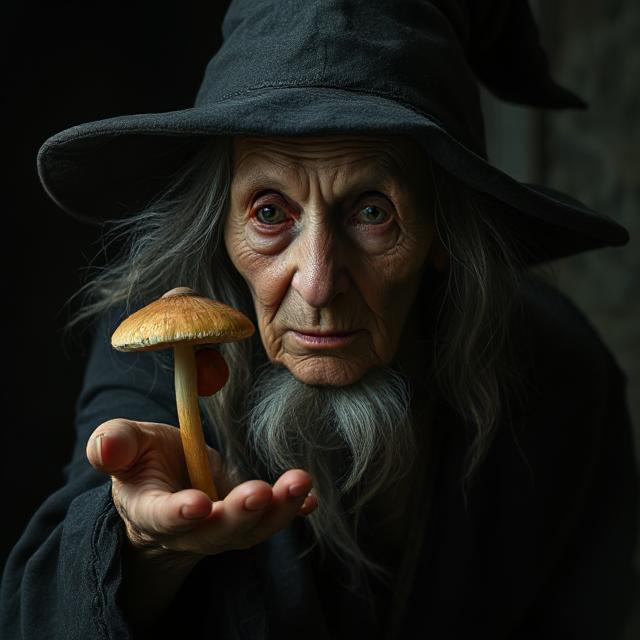You take the quill in your hand, the parchment trembling beneath your fingers. The words you write are meant to seal peace, to bind the Emperor’s oath with ink and solemnity, and to reassure your people that Moravice can breathe once more. The lords nod, the scribes hold their breath, and for a heartbeat, you believe this is the end of the long shadow that Claudius casts across your lands.
But as you and Margaret travel to Zalenice to deliver the signed treaty, you sense it before the courtiers speak: a chill in the air, a tightening in your chest, a pattern of glances that do not meet yours. The wine offered is too sweet, too eager, and the laughter too brittle. You lift the cup, eyes narrowing—and in the same instant, the realization strikes: it is a trap. The Emperor seeks to poison you, to end the story before it begins anew.
Reflexes honed in the desert keep you alive. The cup shatters on the marble floor, courtiers freeze, and your hand finds your sword. Chaos erupts—banners tear from the walls, guards splinter between loyalty and fear—and Margaret is there, her dagger flashing as she shields your back.

Together you carve a path through the stunned court, ghosts of vengeance and survival intertwined. You ride through Zalenice’s corridors like a storm given form, the Emperor’s treachery ringing in your ears. You escape, but not unscathed. The air tastes of iron and betrayal.
But the cup was already at your lips. You feel it then — a warmth turning to fire in your veins, a slow sinking of strength that drags the world into haze. You stumble, the stones of the courtyard tilting beneath your feet, and darkness claws at your vision. Margaret’s voice cuts through the fog — sharp, desperate — and she catches you before you fall, her hands trembling.
From the smoke and chaos, a figure steps forward: an old wench, a witch, cloaked in dark gray, hooded, moving with quiet certainty. She kneels beside you and presses an earthy mushroom streaked with throbbing veins into your hand.

“Take this,” she says, voice low and insistent.
You stare at it, hesitation paralyzing your fingers. A stranger, offering something so small, so strange — and yet the fire in your veins grows hotter, dragging you toward unconsciousness. Margaret’s eyes widen, fear sharp in her voice. “No! Don’t — we don’t know—”
The witch leans closer, meeting your gaze. Then she begins to hum, softly at first, a gentle melody that curls around the edges of your faltering mind.
“Hush now, little crow, the night will not bite,
The stars keep their watch, and hold back the fright…”
It is your mother’s lullaby — a fragment, a whisper of memory you did not know you remembered. The world tilts and shudders, and in that moment, clarity pierces the haze: survival is a choice. You take the mushroom, fingers closing around it, eyes locking with Margaret’s. She looks as if the world has just shifted beneath her feet — fear, hope, and disbelief all tangled in her gaze.
You swallow. Bitter, earthy, alien, but strength blooms immediately, knitting nerves, clearing vision, grounding you in life. The warmth turns to steady fire coursing through your veins.
The witch is gone before you can even look for her, swallowed by the smoke and chaos, leaving only Margaret gripping your arm, her breaths quick, her face pale but alive with relief.
You rise — unsteady, furious, alive. Together, you call to the guards who remain loyal, rally them, gather what men and horses you can, and flee Zalenice before the Emperor’s scheme can finish its work.
But once you are safely away, on the quiet road beyond the city walls, you falter. The relief, the shock, the impossibility of what just happened, presses down. You sink to your knees, and tears burn your eyes. Margaret kneels beside you, unsure, her hand warm against your arm.
“It was her,” you whisper through the sobs — your mother, at least in soul, guiding you through the witch, saving you when death had almost claimed you. The lullaby, the certainty in that voice, the unseen hand that pressed the mushroom into your palm — it was her. She had come to you in your darkest hour.
Margaret tightens her grip, eyes glimmering with tears of her own. “You survived,” she says softly. “You’re here.”
“Yes,” you manage between shuddering breaths. “But it was her… my mother… she saved me, through a witch, somehow…”
And in that recognition, that impossible, sacred miracle, you feel the depth of both loss and love, the intertwining of life and memory, and the crow in your chest — once restless with fear and vengeance — finally quiets.
War resumes with renewed ferocity. Moravice rallies behind you—not merely because you are its leader, but because your resolve burns brighter than fear itself. The Emperor’s forces descend upon your walls again, relentless and disciplined. Margaret stands beside you in council and on the battlements, her eyes cold and steady as she commands archers, tends the wounded, and spies patterns even your captains overlook.
Your walls are rebuilt thicker than before, your gates reinforced, your strategies sharpened by experience and necessity. Each day you ride among your people, speaking of courage, of endurance, of love that outlasts despair. They look to you both—ruler and consort—as symbols of unity born from fire.
The siege drags on, months stretching into a year. Battles rage, losses mount, and the Emperor proves as cunning and relentless as ever. Claudius’ armies falter, not from weakness, but from the stalemate you have imposed. At last, through negotiation, careful maneuvering, and the threat of devastating counterattacks, you force a truce.
Moravice will not fall, but neither will Claudius. The empire is divided: each of you rules your own dominion, ever wary of the other. The peace is fragile, enforced by strategy, patience, and the unspoken understanding that any misstep could ignite war anew.
Margaret stands beside you as you walk the walls after the ceasefire, her hand warm in yours. She has been with you through every danger, every loss, every moment of near despair. Together, you have carved a path through fire and blood, and together you hold this uneasy peace.
Years follow, quieter now but still tense. You and Margaret walk the streets of Moravice rebuilt—bridges mended, schools reopened, orchards planted where ashes once lay. Margaret’s counsel shapes your laws; her empathy tempers your justice. She becomes the heart of the realm while you remain its hand.
Children come—two bright souls whose laughter fills the palace and whose curiosity mirrors your own. Margaret raises them not as heirs of conquest, but as stewards of wisdom and caution, teaching them that power is never absolute, and vigilance is always necessary. They will inherit a divided world, and the lessons of Claudius’ ambition will shadow their path.
You age beside her, not as monarchs insulated from the world, but as witnesses to its cycles—creation and destruction, loss and renewal. The mantra from the desert lingers still: life is both creation and destruction. You understand it now, not as a warning, but as truth.
In quiet moments, as you and Margaret walk the palace gardens in the dusk, you reflect upon what was gained and what was lost. You think of the friends buried, the roads burned, the betrayals endured—and of the forgiveness that began all this. Without it, there would have been no peace, no home, no future.
Power, you’ve learned, is not a crown upon the brow but a burden upon the soul. Truth is not a weapon, but a mirror, and love—not conquest, not dominion—is the only force that survives the turning of empires.
Years turn. Your children grow wise, aware that vigilance is part of their inheritance. Moravice thrives: its rivers run clear, its harvests plentiful, its people proud. You preside over councils, not as an absolute ruler, but as a mediator between voices. Margaret remains your closest counsel, her mind as sharp as ever, her laughter still the sound that softens the edges of your resolve.
Even as gray touches your hair, the crow within you stirs at times, whispering reminders of mortality and vigilance — but now it reminds you not only of threats, but of the family, the city, and the love that have endured through everything.
And in the evenings, when you and Margaret sit beside the hearth and the city hums beyond the palace walls, peace settles over you like a fragile, earned truth. You realize mastery was never the goal. To live, to love, to forgive — that was the lesson hidden in every trial.
You are not god, nor omniscient. You are mortal — flawed, scarred, whole. Yet you have unveiled your past, understood your future, and claimed the present. Together you and Margaret have built a realm that endures not because of fear, but because of faith — faith in each other, in your people, and in the fragile, miraculous balance between love and power.
And so you live — not as an untouchable sovereign, but as a man who has seen the mirror of the world and chosen to love his reflection within it. The empire is divided, but your family flourishes. The choices you made — each burdened, each deliberate — have shaped a world worth inhabiting.
When dawn rises over Moravice, the bells toll not for war, but for vigilance tempered by peace. The city breathes. The fields sing. The crow rests, always watchful. And at your side, as always, Margaret smiles.
That is your legacy. That is your truth.
…..
THE END
…..

One Comment